Timeline: Derrick Rose’s road from Chicago to New York

Your teams. Your favorite writers. Wherever you want them. Personalize SI with our new App. Install on iOS or Android.
Derrick Rose’s time in Chicago came to a close on Wednesday, as the Bulls stunned the public at large by sending the former MVP to the New York Knicks.
There’s a lot to unpack with this deal, which brought back defensive-minded center Robin Lopez as the main piece for the Bulls. Rose has one year left on his contract. It’s a calculated gamble for both sides. But given Rose’s long history in his native city, dating back to high school stardom through his professional peak and the injuries that followed, it’s the first major ripple in a very young NBA off-season.
For old times’ sake, let’s look back at Rose’s career and where it’s headed.
• Grades: Knicks' trade for Rose all sizzle, no steak
The auspicious start
After the Bulls beat the odds and won the 2008 draft lottery despite a 1.8% chance of landing the top pick, they sparked additional conspiracy theories by taking the hometown kid in Rose, fresh off a Final Four run at Memphis and a former two-time state champion at Simeon Career Academy. They picked him over Kansas State forward Michael Beasley. It was the first real fresh start for the franchise since Michael Jordan retired and the championship-winning Bulls disbanded in 1998.
Story short, he became a star almost immediately. He won Rookie of the Year, helped lead the Bulls to the playoffs, and nearly led them to a first-round upset against the defending champion Boston Celtics. That playoff series would go down as arguably one of the best ever. This mix is 53 minutes long, but seriously, watch all of it.
The youngest MVP ever
Rose was an All-Star in his second season, but the Bulls were bounced by LeBron James and the Cavaliers in five games. He came back the next season with a vengeance and a new head coach in Tom Thibodeau, perhaps the most highly-esteemed assistant in the league alongside Doc Rivers in Boston. Rose, Luol Deng, free-agent addition Carlos Boozer and Joakim Noah formed a strong core. The Bulls were back.
Before the season, Rose delivered a famous speech, asking, “Why can’t I be MVP of the league?”
Spoiler alert: he went and did it. Rose became perhaps he league’s most dominant scoring point guard, averaging 25 points, 7.7 assists, 4.1 rebounds and a steal in leading Chicago to the top of the Eastern Conference at 62–20. At 23 years and two months old, he became the youngest MVP in NBA history.
The Bulls bowed out against the Miami Heat in five games, led by the new big three of James, Dwyane Wade and Chris Bosh. A real rivalry appeared to be brewing.
Just watch this mixtape. It’s ridiculous. It’s peak Derrick Rose.
The first knee injury
Alright, we’re kind of skimping on a third straight All-Star season here. He opened it by signing a five-year contract extension that would take up 30% of Chicago’s salary cap, the maximum allowed under a stipulation in the 2011 collective bargaining agreement that was later dubbed the “Derrick Rose rule.” This was also the year of the lockout, which officially was ratified and ended Dec. 8. The season began on Christmas.
Chicago made it back to the playoffs, again winning the East regular season at 50–16. And then, in the first game of the postseason, against the Sixers, Rose tore his left ACL. Chicago bowed out in six games in that series and watched as the Heat won their first title.
Rose would miss the entire 2012–13 season and drew media skepticism for waiting his injury out. The recovery was slow-rolled and highly-publicized. Shoe sponsor adidas launched a huge marketing campaign around their signature star. That hype never quite mounted anywhere. Miami won another title, but not without the Bulls scrapping their way to the East semifinals, led by Noah, their emotional center, and Thibodeau’s defensive-minded scheming.
Derrick Rose in High School
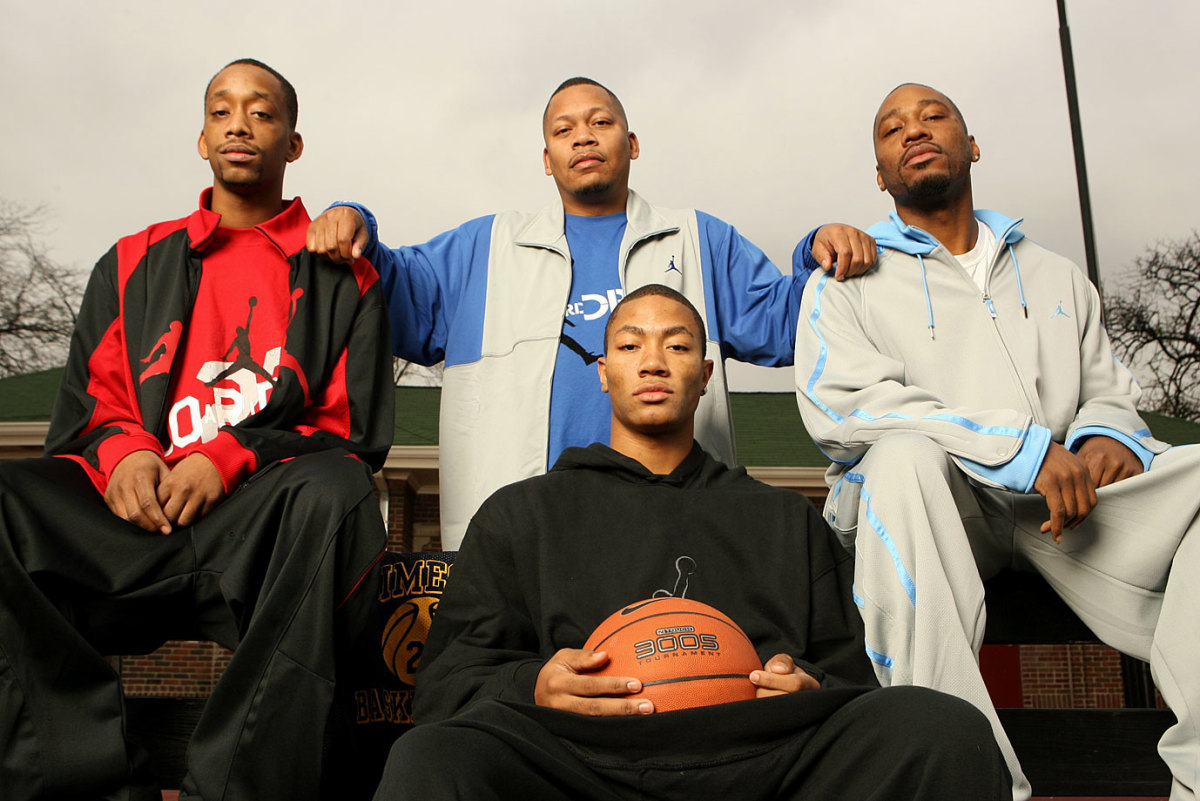
Derrick Rose learned how to play from his older brothers Dwayne, Reggie and Allan.
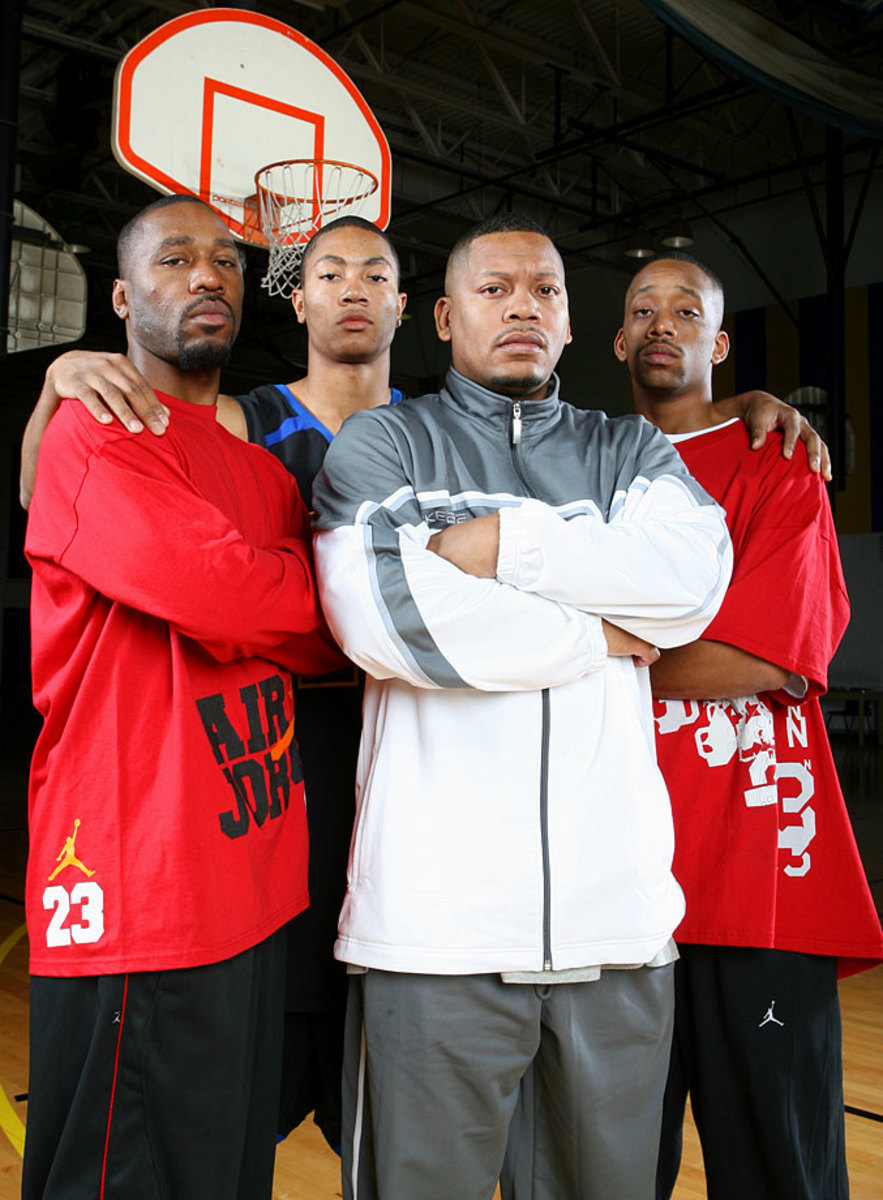
As Rose's mother, Brenda, told Sports Illustrated's George Dohrmann in 2006: "His brothers knew basketball, I didn't. I told them to handle it.
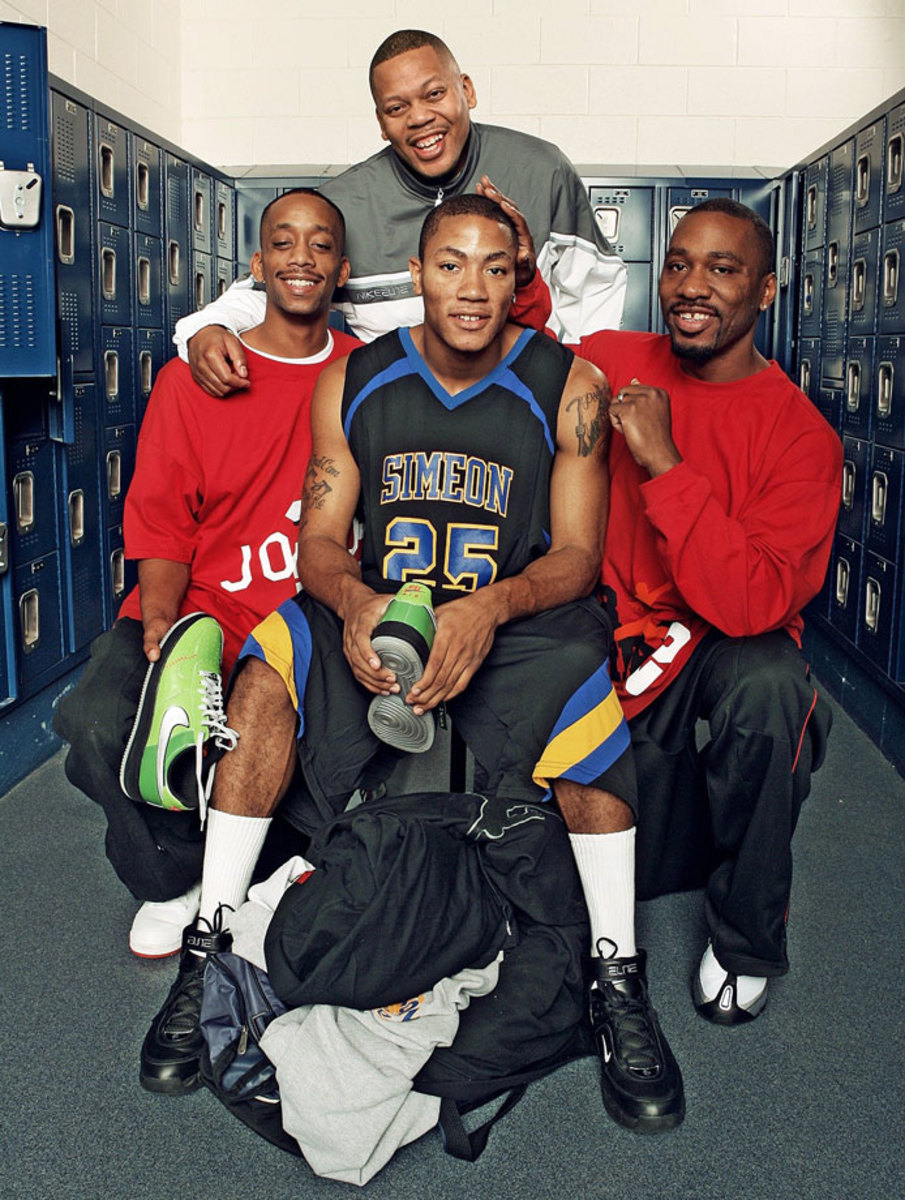
Rose's family controlled nearly every aspect of his high school career and recruiting process to keep him on the right path in Chicago. In fact, Reggie formed his own AAU team, the MeanStreets Express, to coach Derrick.
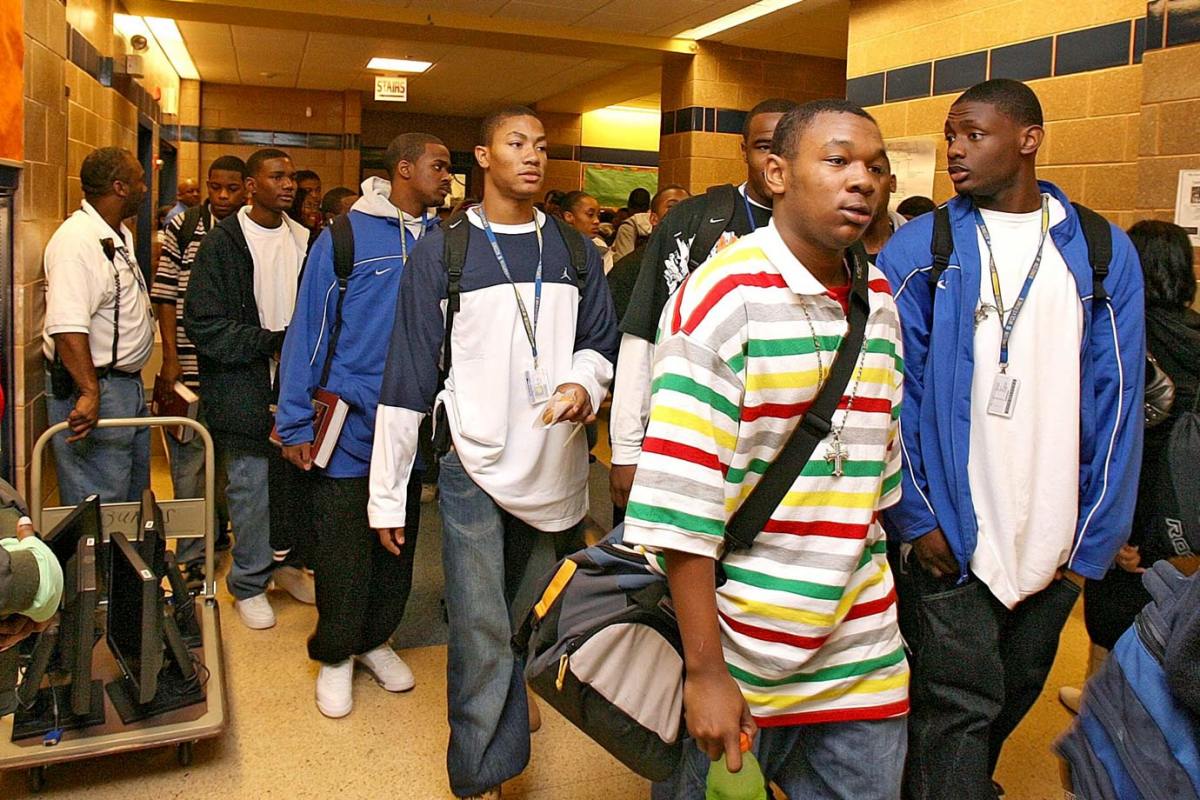
Rose's brothers guided him through everything, from getting dropped off at school, to monitoring nearly every facet of the recruiting process, which started before Rose even got to high school.
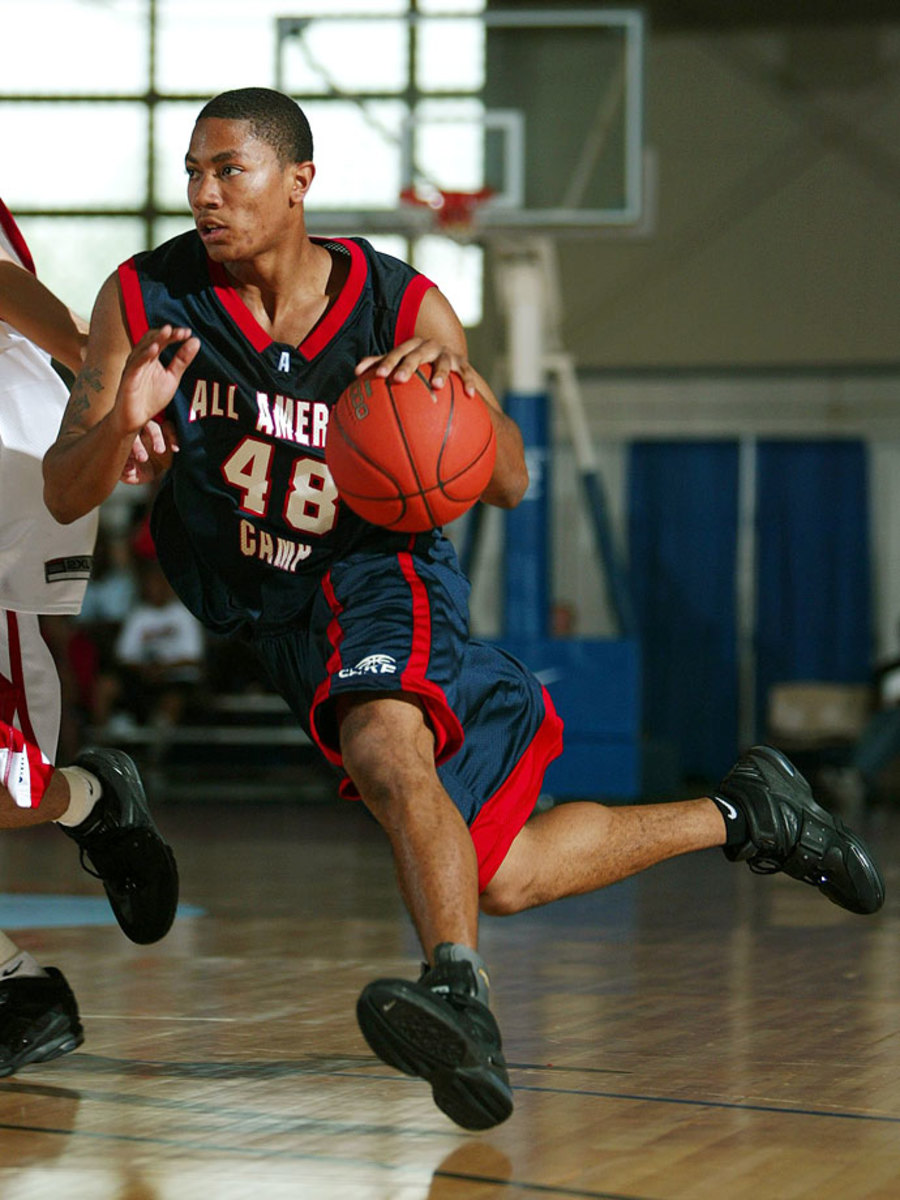
Derrick Rose enrolled at Simeon in 2003, but because of a longtime rule by coach Bob Hambric, Rose had to start on the junior varsity squad, and wasn't allowed to speak to media until the end of his junior season.
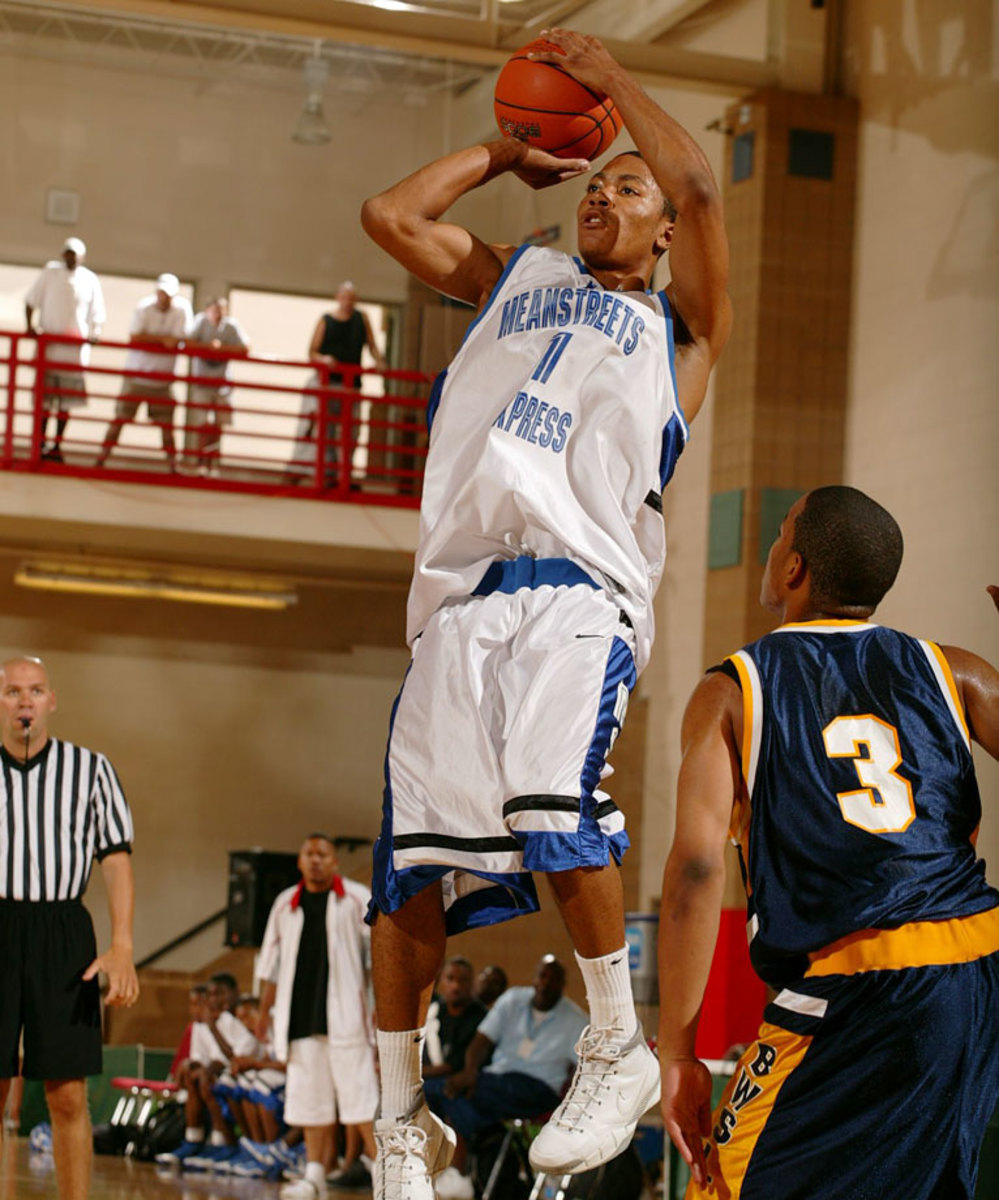
Derrick Rose's numbers jumped from 18.5 points per game to 25.5 from his freshman to senior seasons at Simeon.
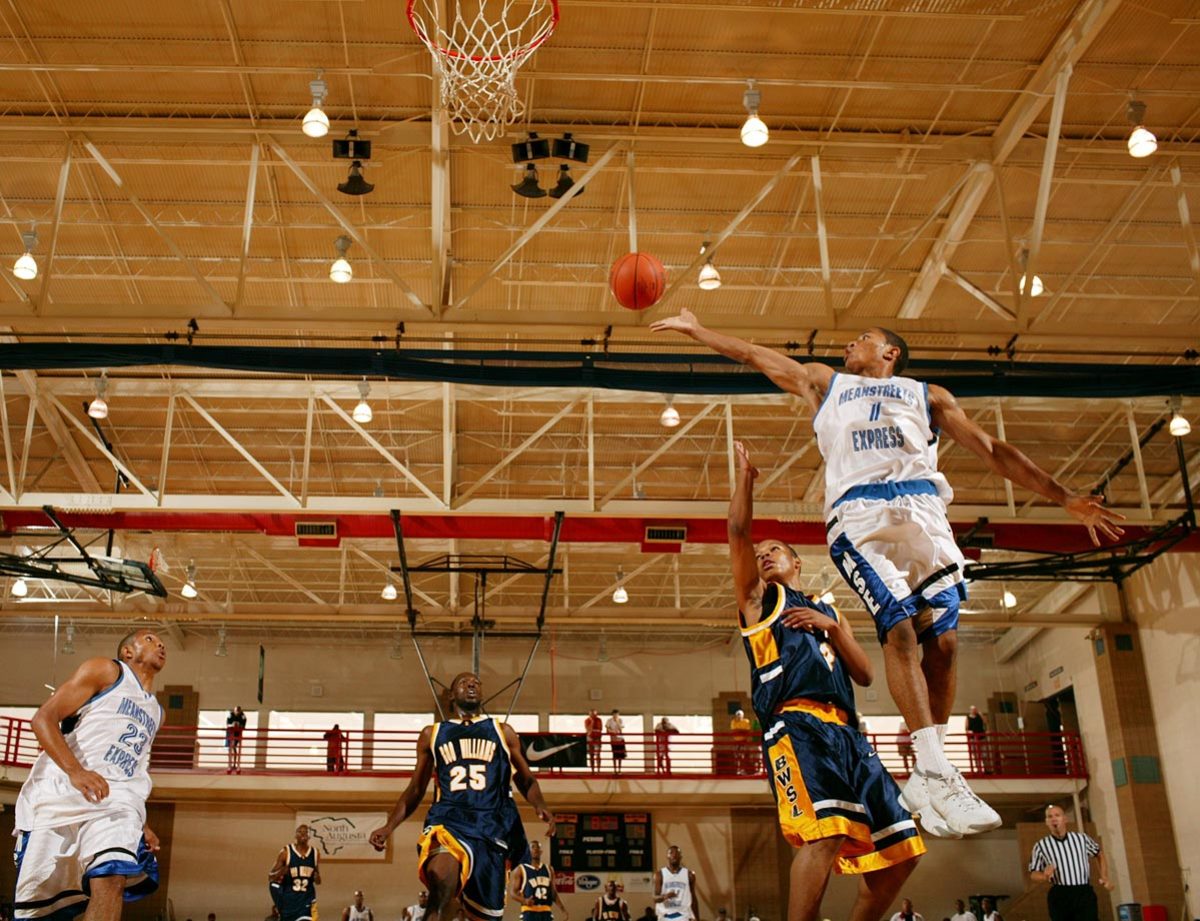
Derrick Rose's high profile at Simeon helped a number of his teammates earn recognition, as well.
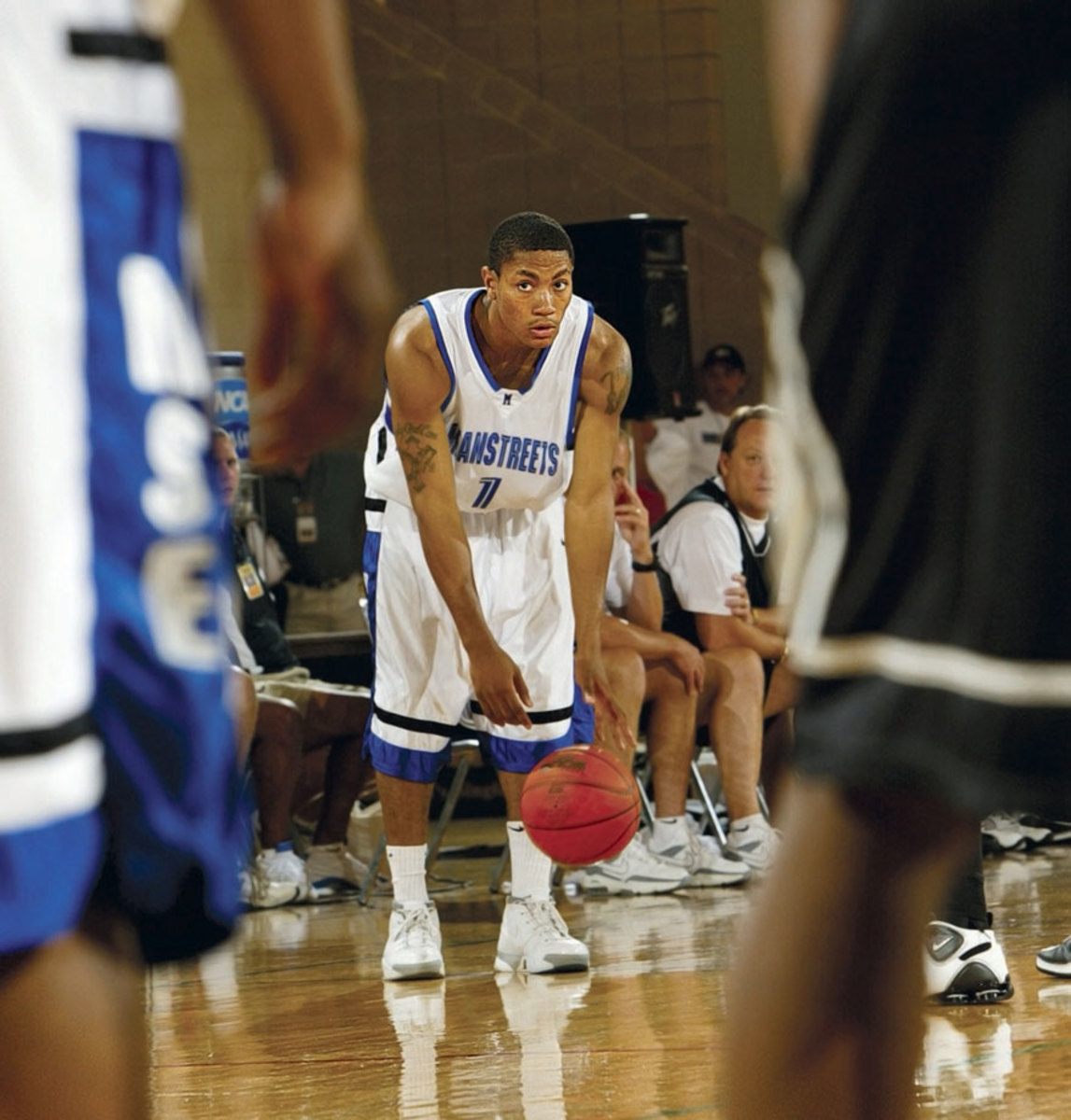
After his junior year of high school, Derrick Rose already had a Class AA championship and Tournament MVP under his belt.
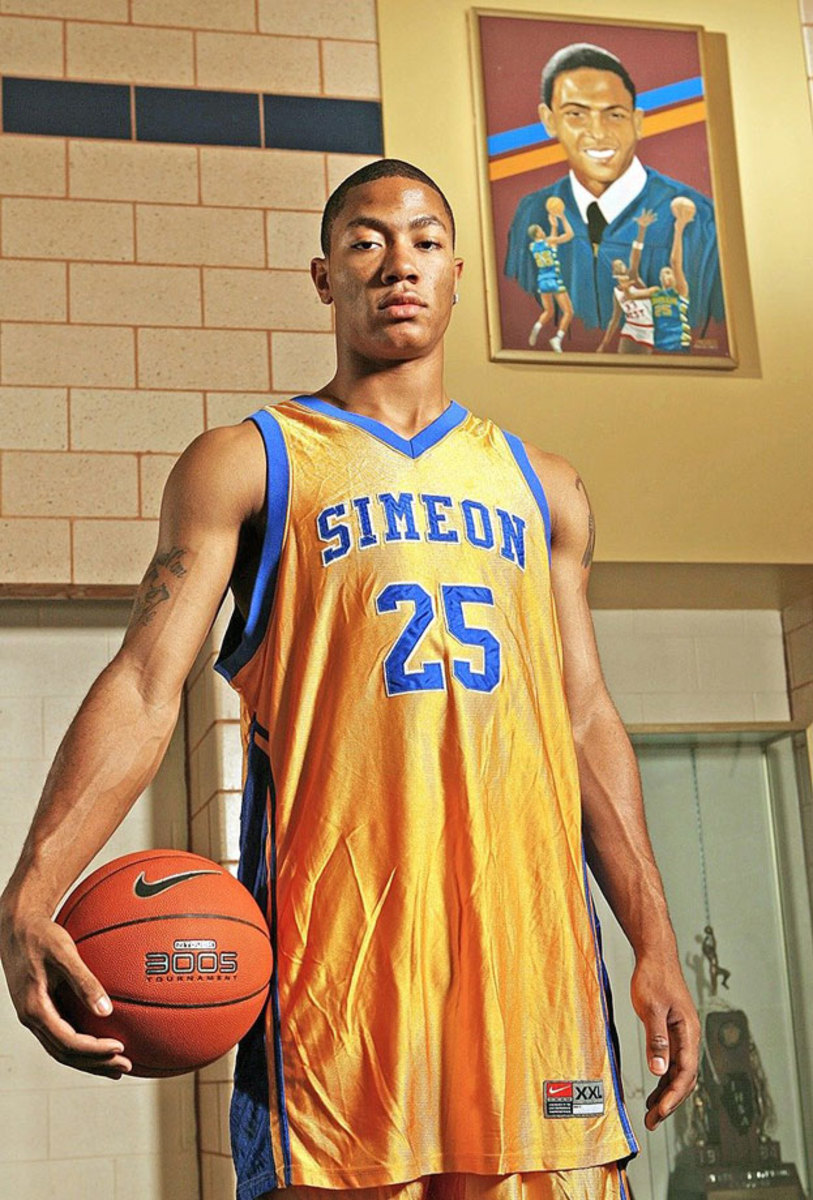
With Derrick Rose leading the way, Simeon also won back-to-back state titles to become the first Chicago Public League school to achieve the feat. The Wolverines' overall record during Rose's career was 120-12.
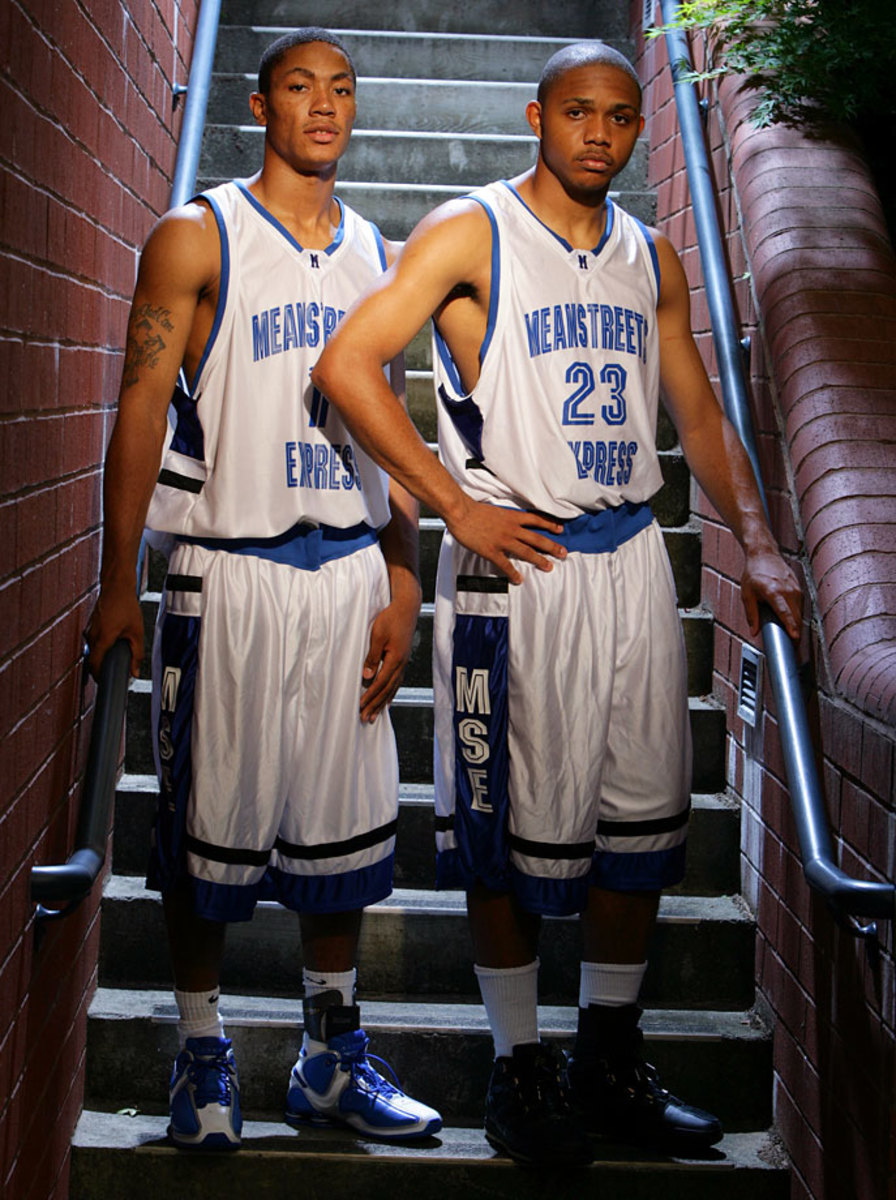
During the summers, Derrick Rose and Eric Gordon — then an Indiana prep star — locked down the backcourt of the MeanStreets Express, leading the AAU team to the 2006 Nike Peach Jam championship, an invitation-only tournament for the country's finest teams.
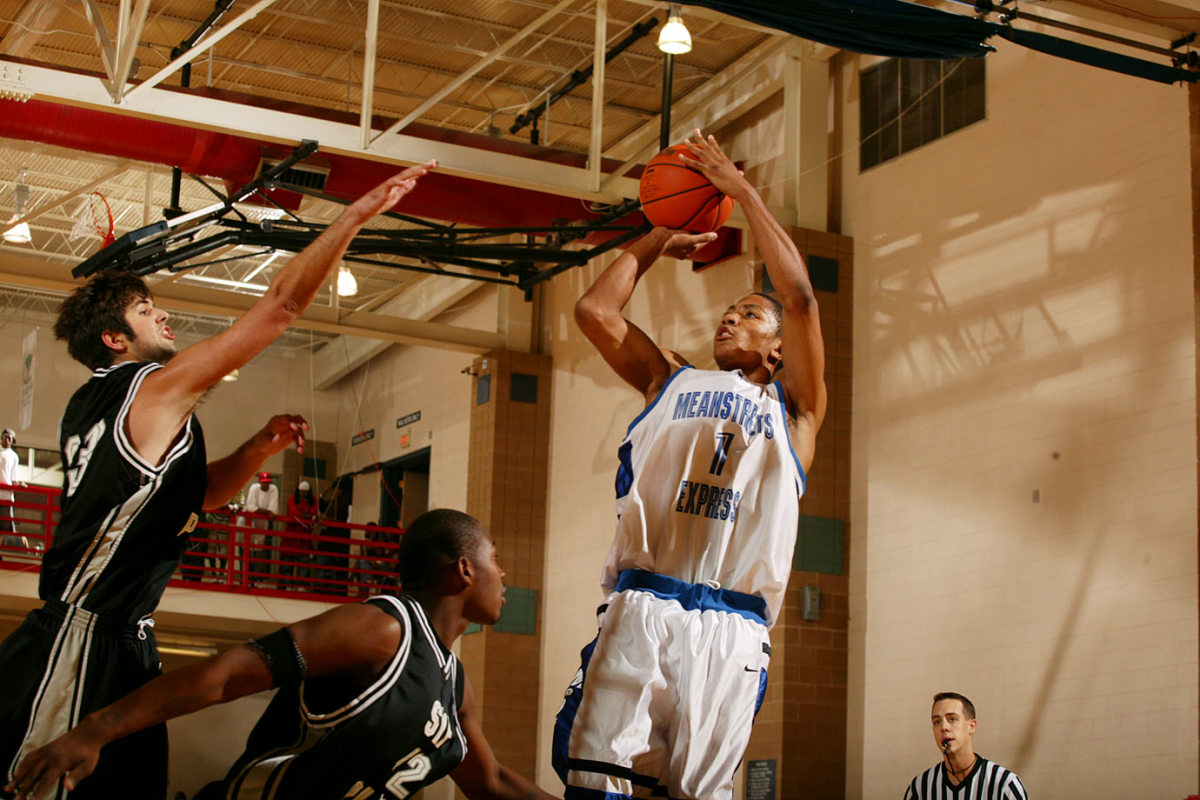
The MeanStreets Express played against a slew of future NBA stars, including Brandon Jennings, Kevin Love and O.J. Mayo.
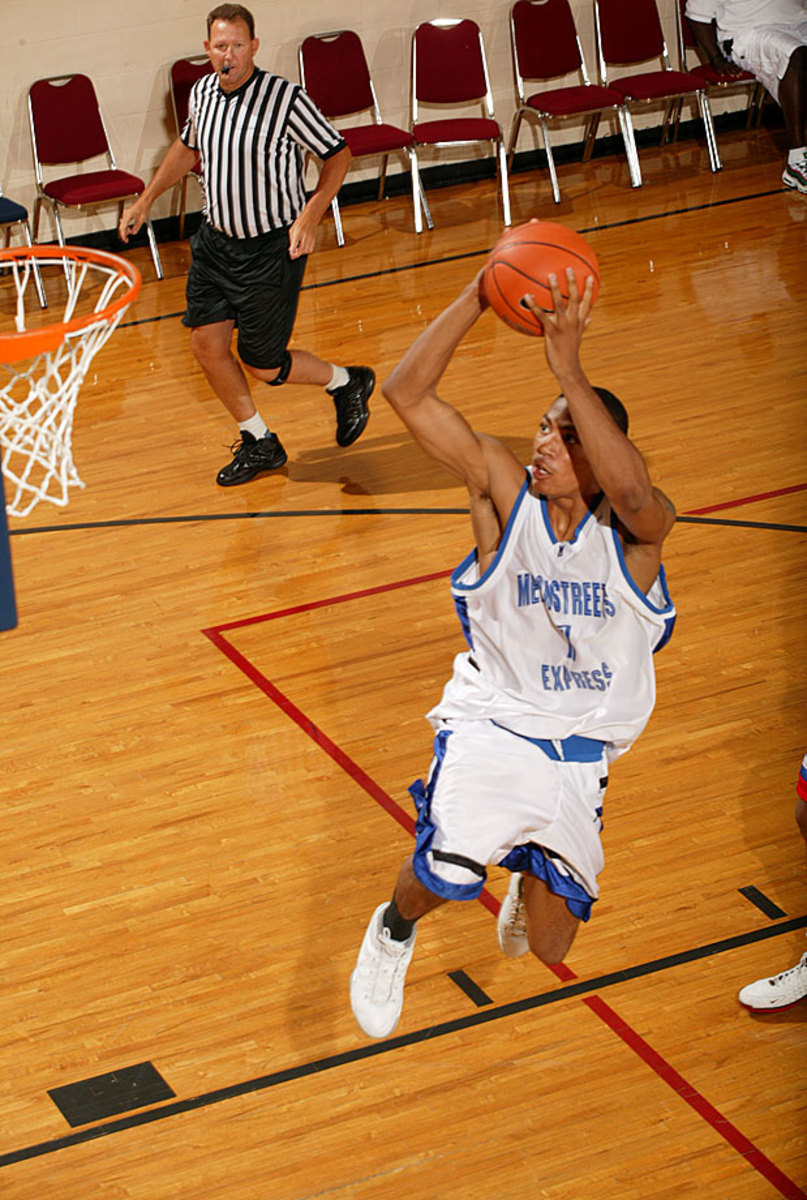
At the 2006 Peach Jam tournament, Derrick Rose put up 21 points, 14 rebounds and 12 assists in a matchup with O.J. Mayo, then considered the best guard in the class of 2007.
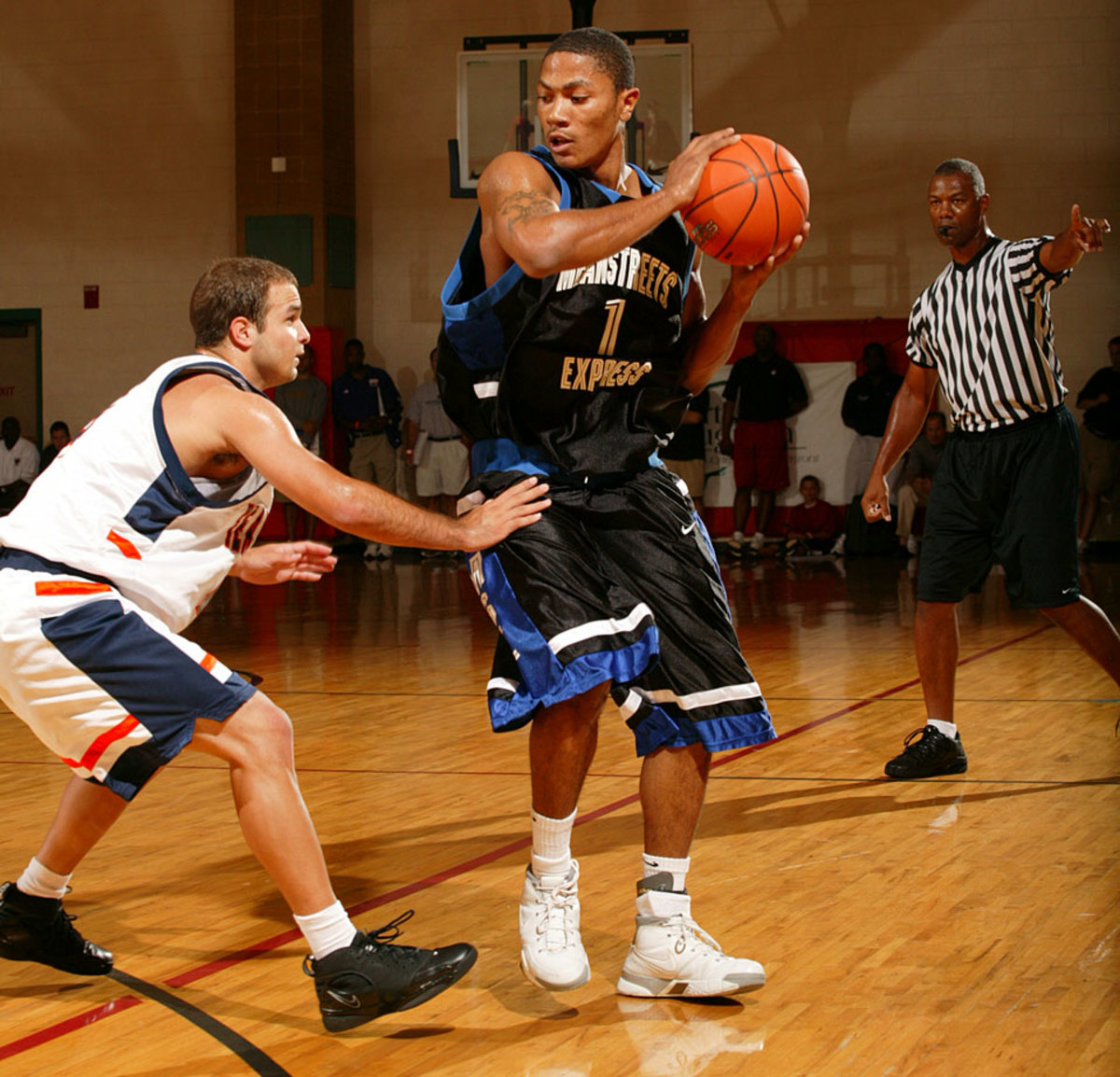
Derrick Rose was ranked among the top five players in the class of 2007 and was arguably the best player to come out of the Windy City in years.
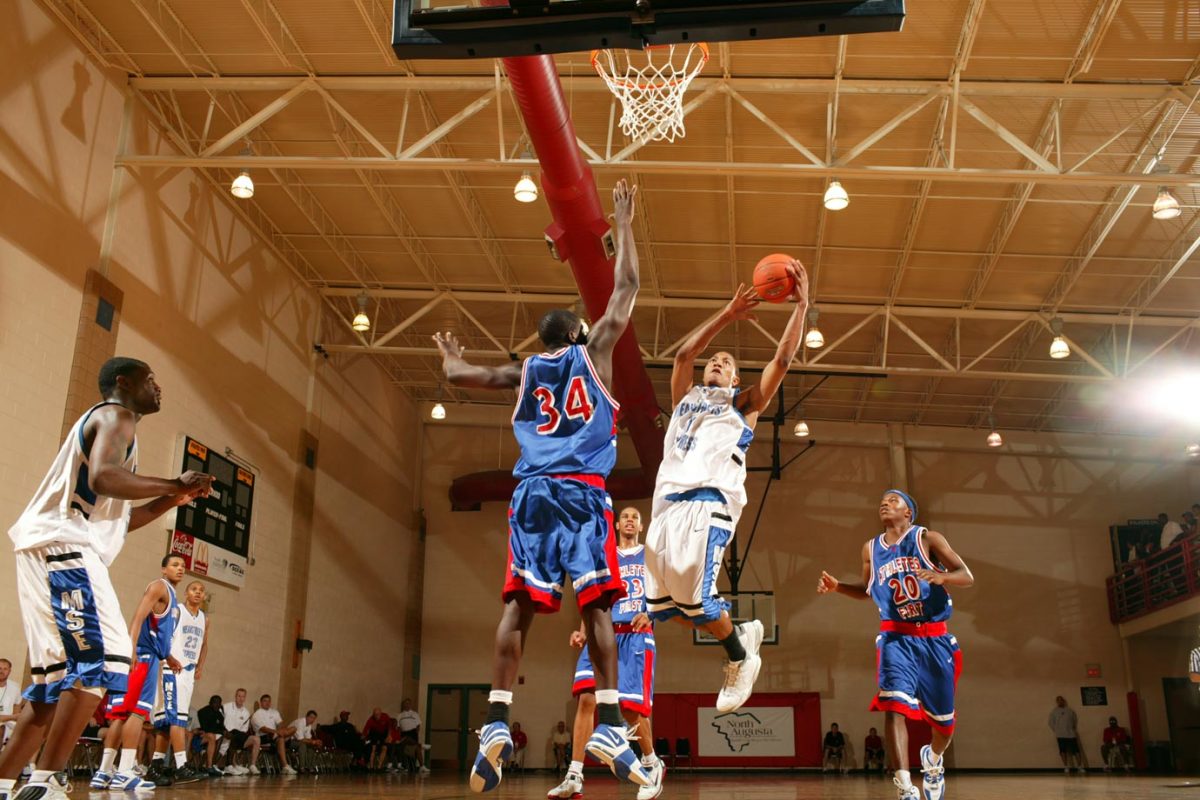
Derrick A month before his impressive showing against O.J. Mayo, Derrick Rose played with an injured hand — his shooting hand — and still managed to score 12 points, using only his left.
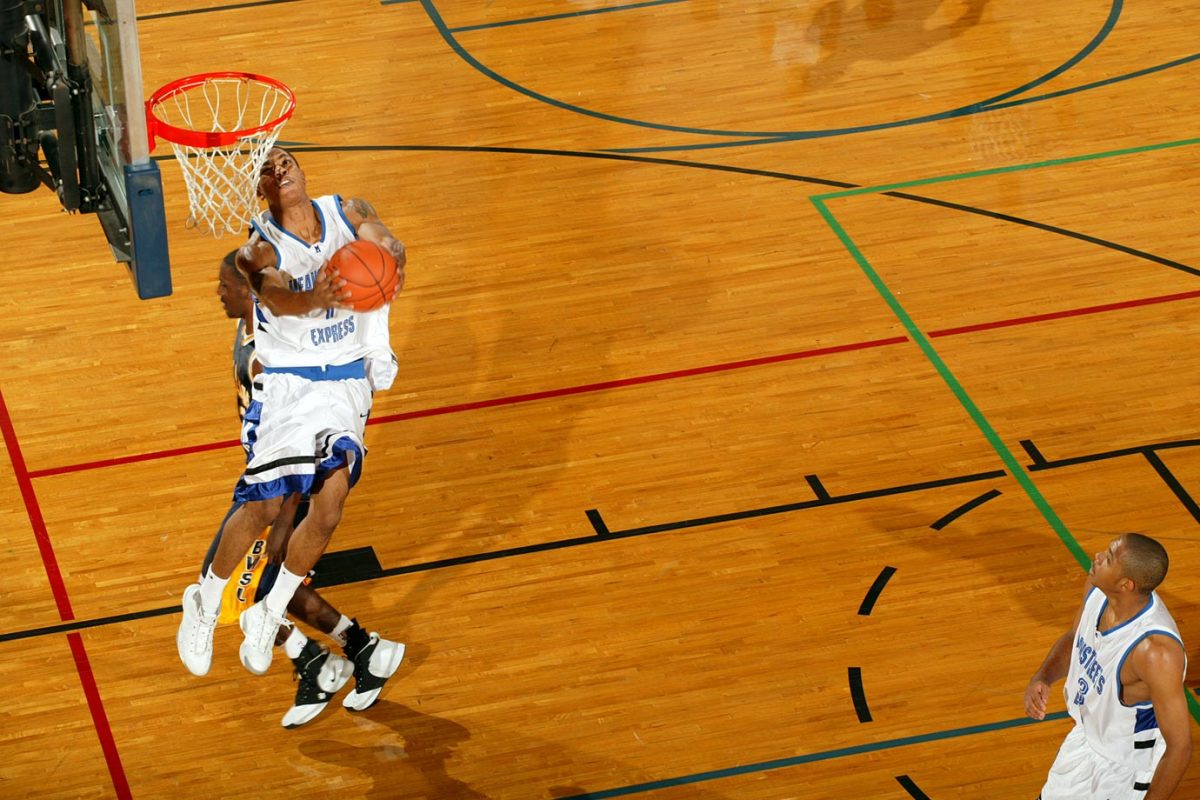
In a nationally televised game against Oak Hill, the No. 1 team in the nation, Derrick Rose poured in 28 points and nine assists and grabbed eight rebounds in a 78-75 win. He was matched with Brandon Jennings, whom he held to zero points over the first three quarters.
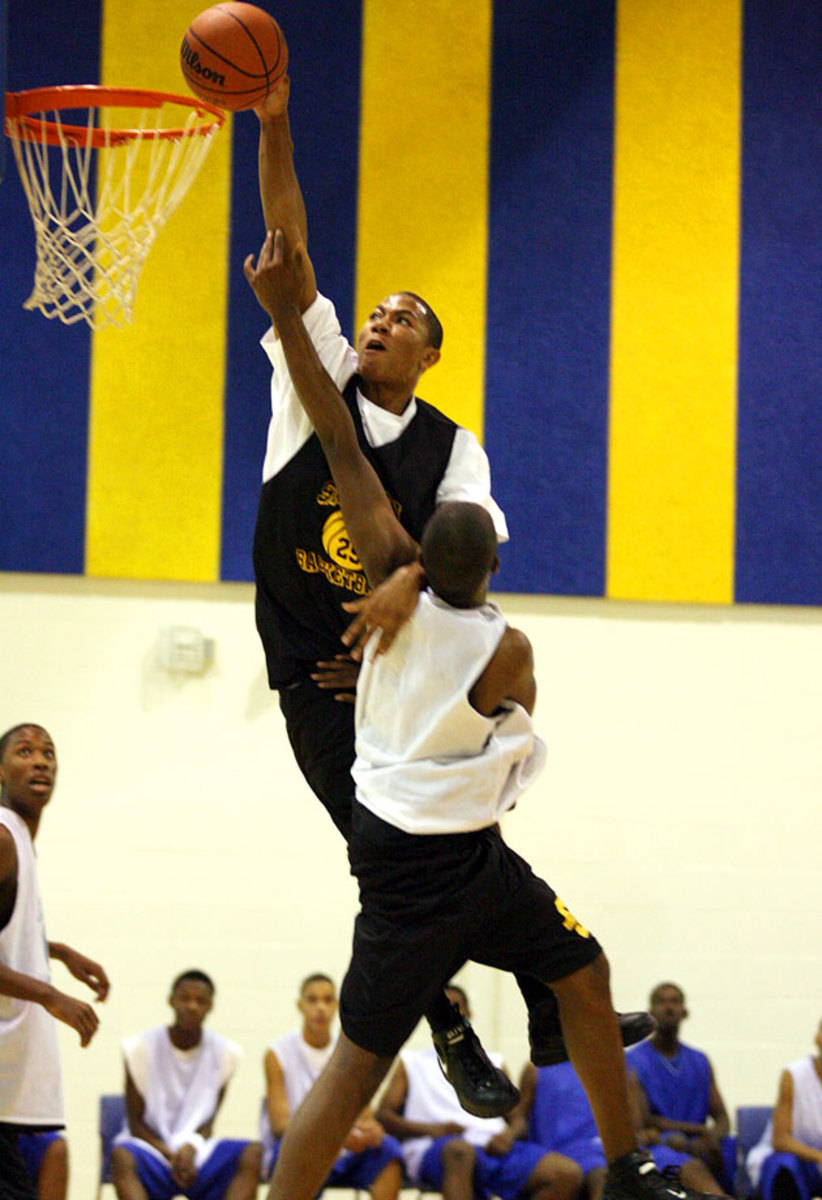
Derrick Rose also became known for his impressive dunks at Simeon and with the Meanstreets Express.
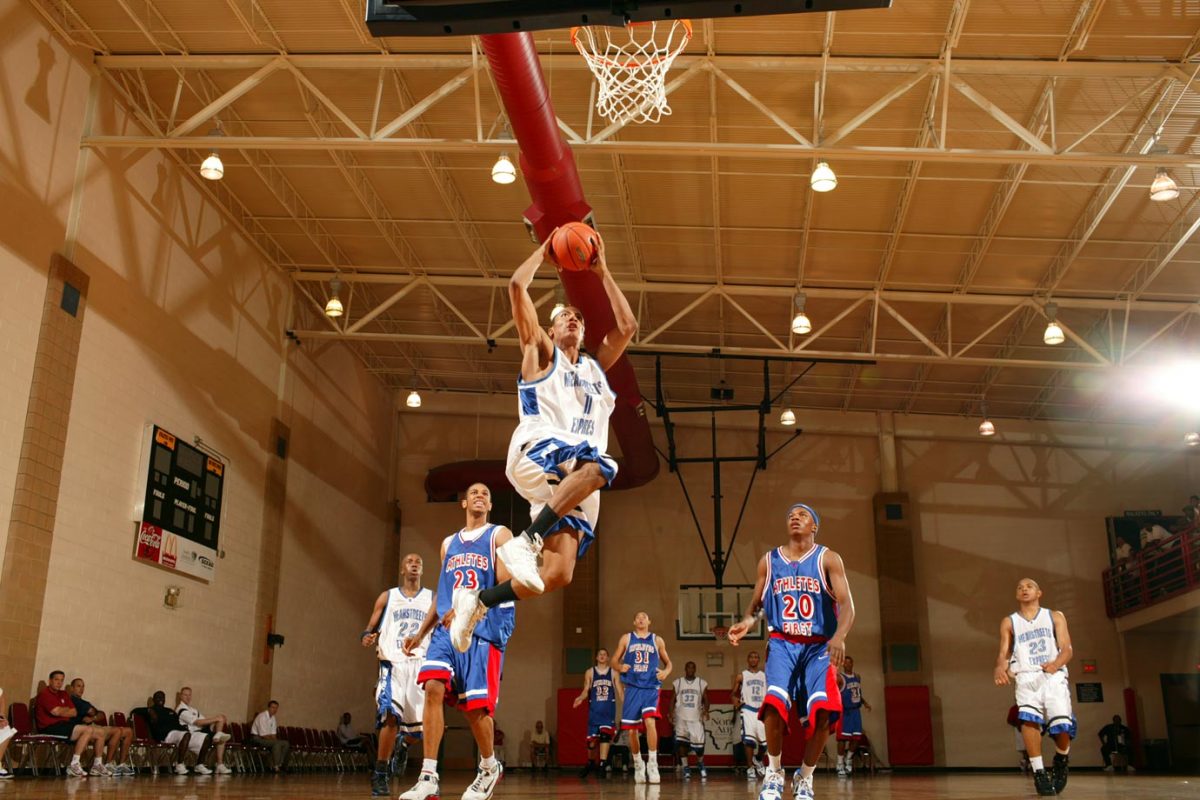
Here's more proof.
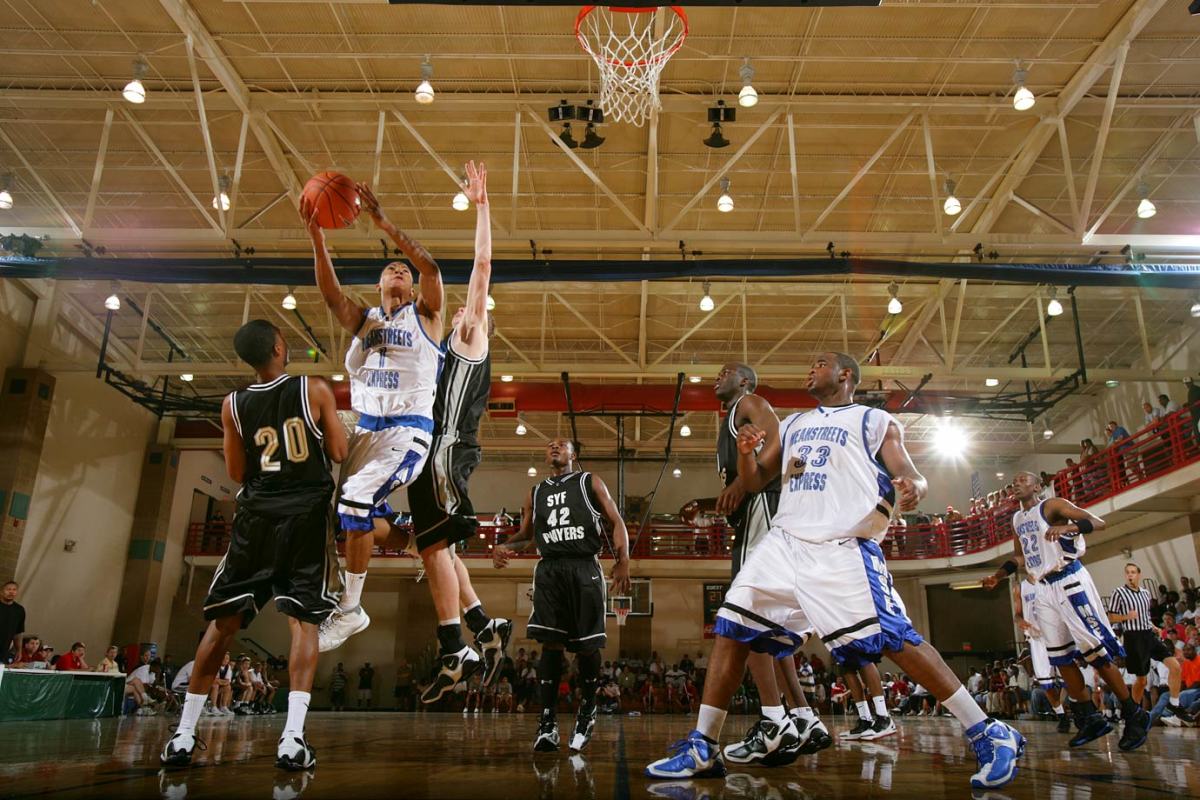
Among Derrick Rose's many accolades in his final year of high school: being named to the USA Today All-USA Team, being selected to the 2007 Parade Magazine All-America Team and being named Illinois' Mr. Basketball by the Chicago Tribune .
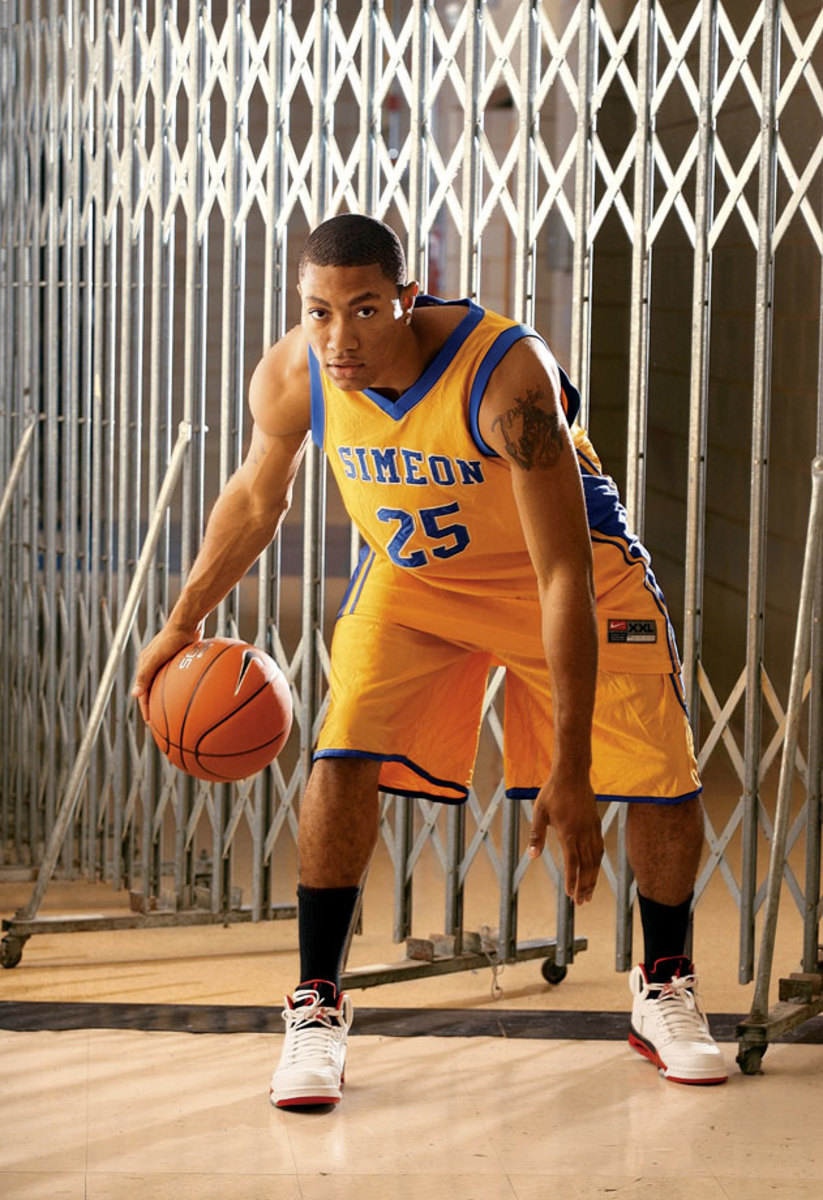
Derrick Rose was also named the decade's third-best point guard by ESPN RISE, behind Wake Forest prospect Chris Paul and T.J. Ford.
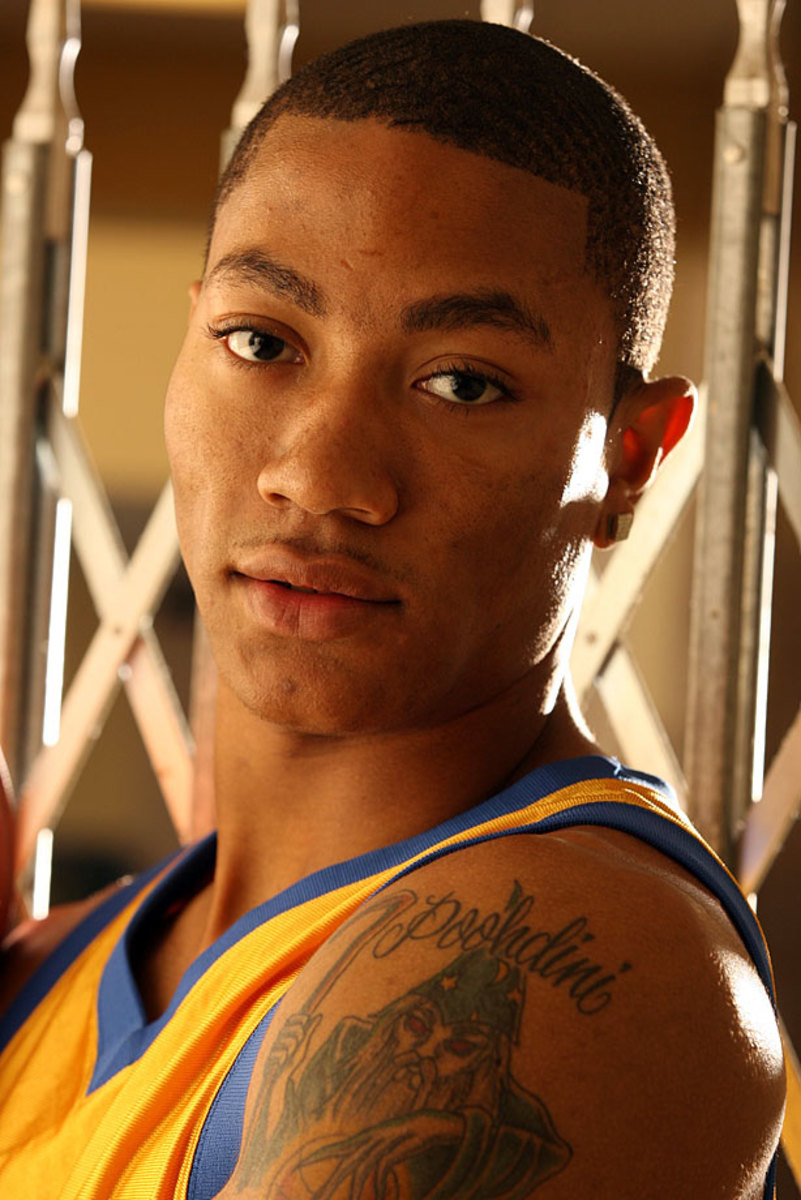
Though he accepted a scholarship from the University of Memphis, Derrick Rose only spent a year away from his hometown before being selected with the first overall pick in the 2008 draft, by the Bulls.
The first return, the second exit
Rose finally took the floor to open the 2013–14 preseason. He told reporters in October that his vertical had actually increased by five inches. He began getting his legs under him as the season began with mixed effectiveness. In Chicago’s home opener, on Halloween against the Knicks, this happened.
And then he tore his right meniscus. On Nov. 22 against the Portland Trail Blazers, Rose went down again. He had surgery three days later and missed the rest of the season.
Chicago went 48–34 and went out in the first round against the Washington Wizards. D.J. Augustin and Kirk Hinrich were playing point guard. Dire times. Awful ones.
Another comeback, another injury, another comeback
Rose came back again in time to start the 2014–15 season. There was even more discourse as to his health, his long-term ability, his confidence and where the Bulls were headed. Patience had begun to wear somewhat thin with a chunk of the fan base. Rose returned, again, and wasn’t himself — perhaps he never would be — but the Bulls were improving and Jimmy Butler emerged as the viable shooting guard they needed.
On Feb. 24, Rose tore his right meniscus again. It was unbelievable and eminently real at the same time. He would miss just 20 games this time and return in time for the playoffs. His explosion came and went, his jump shot often waned, but he averaged 21.5 points per game in a first-round series win over the Bucks.
The Bulls met LeBron James, back on the Cavaliers, in the semifinals. Long their playoff tormentor, James would hit a game-winner in Game 4 to tie the series 2–1 and eventually galvanize Cleveland toward the Finals. But not without this sliver of hope from Rose, in what may be his lasting highlight as a Bull.
The shot won Game 3. It wasn’t enough, but it was a moment, to be sure.
The eventual outs
Rumors began to swirl entering 2015–16 that Rose and Butler, who’d become a star in his own right, had begun to clash and that their styles of play couldn’t co-exist. Whether or not that was true, the Bulls soldiered on. Tom Thibodeau was fired, his relationship with the front office having worn down both sides over the past few years.
Like clockwork, Rose suffered an orbital bone fracture in the very first practice of the season. He returned wearing a facemask in time for the regular season. It would be Rose’s healthiest campaign since 2011 and his most statistically effective, averaging 16.4 points and shooting 42.7% from the floor, but one full of tumult for Chicago. The Bulls lumbered to a 42–40 record and missed the post-season under new head coach Fred Hoiberg, all the angst from years past catching up to everybody. The Bulls were out of the playoffs for the first time since the pre-Rose era.
And on June 22, 2016, Rose was dealt to the Knicks. GM Gar Forman called it a “retool” in his press conference. He spoke like he intended to keep Butler, and use the newly-acquired center Robin Lopez and point guard Jerian Grant as building blocks. The deal perhaps signaled the exits of two Bulls cornerstones, as Lopez appeared the clear replacement for soon-to-be free agent Joakim Noah.
Rose is a Knick, for better or worse. And needless to say, it’s weird for everybody.
